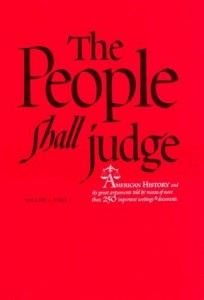 This book expresses the faith of one American college in the usefulness of liberal education to American democracy. If the United States is to be a democracy, its citizens must be free. If citizens are to be free, they must be their own judges. If they are to judge well, they must be wise. Citizens may be born free; they are not born wise. Therefore, the business of liberal education in a democracy is to make free men wise. Democracy declares that “the people shall judge”. Liberal education must help the people to judge well.
This book expresses the faith of one American college in the usefulness of liberal education to American democracy. If the United States is to be a democracy, its citizens must be free. If citizens are to be free, they must be their own judges. If they are to judge well, they must be wise. Citizens may be born free; they are not born wise. Therefore, the business of liberal education in a democracy is to make free men wise. Democracy declares that “the people shall judge”. Liberal education must help the people to judge well.
– The People Shall Judge (1949)
.
Liberal Education & Western Classics
Although liberal education in practice can be many things, in principle “liberal” education is an education designed for the cultivation of a “free” (Latin: “liber“, as in “liberty”) person capable of successfully and meaningfully managing her or his own life and of successfully and meaningfully participating in the life of his or her community. In other words, a person who self-actualizes both as an individual and as a citizen.
Prior World War I, a liberal education traditionally called in part for students to learn Latin and Greek and to read Greek and Latin classics in the original languages. Indeed in 1911 the now-legendary Loeb Classical Library — which features Greek and Latin texts with accompanying English translations — was begun as “a practical and attractive way to revive the lagging interest in ancient literature which has for more than a generation been a matter of so much concern to educators” .
The Great Books Movement
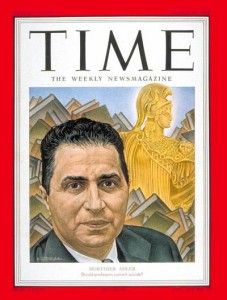 Perhaps it was inevitable that an era oriented firmly towards modernity and the future should turn its back on the past and the classics. In any case, following World War I interest in Greek and Latin waned considerably — along with interest in the Greek and Latin classics, which in many cases were only available in their original languages. Around the same time, however, a new movement arose to revive the classics by making them widely available in English translation and to change the way the works were studied.
Perhaps it was inevitable that an era oriented firmly towards modernity and the future should turn its back on the past and the classics. In any case, following World War I interest in Greek and Latin waned considerably — along with interest in the Greek and Latin classics, which in many cases were only available in their original languages. Around the same time, however, a new movement arose to revive the classics by making them widely available in English translation and to change the way the works were studied.
Begun by John Erskine of Columbia University and developed by Mortimer Adler (originally a student of Erskine’s), Robert Hutchins and others at the University of Chicago, what came to be known as “The Great Books Movement” emphasized student discussions of “Western classics” (centered on, but also more than, Greek and Latin works) in English translation where necessary. By the late 1930’s “Great Books” had become a fixture at the University of Chicago, both in the College and in the adult education division (then known as University College), as well as at St. John’s College in Annapolis, Maryland. During and after World War II, Great Books discussion groups proliferated across the United States and in 1947 the Great Books Foundation was formed in Chicago to guide and foster the movement. In 1950, University-of-Chicago-affiliated Shimer College adopted a “Great Books” curriculum that survives to this day.
The Great Books of the Western World
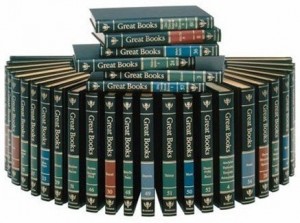 In order to make the “Great Books” more widely accessible, Robert Hutchins, Moritimer Adler and Robert Benton arranged for the Encyclopedia Brittanica to publish multi-volume set of The Great Books of the Western World . The first edition of 54 volumes appeared in 1952 and consisted of an introductory volume by Robert Hutchins entitled The Great Conversation, a two-volume Syntopicon edited by Mortimer Adler and 51 further volumes containing 102 “Great Books”. A second edition of 60 volumes was published in 1990.
In order to make the “Great Books” more widely accessible, Robert Hutchins, Moritimer Adler and Robert Benton arranged for the Encyclopedia Brittanica to publish multi-volume set of The Great Books of the Western World . The first edition of 54 volumes appeared in 1952 and consisted of an introductory volume by Robert Hutchins entitled The Great Conversation, a two-volume Syntopicon edited by Mortimer Adler and 51 further volumes containing 102 “Great Books”. A second edition of 60 volumes was published in 1990.
The University of Chicago
For much of the 20th century — and now also the 21st century — the University of Chicago has been a leader in liberal education for both undergraduates and adults, emphasizing the close reading and discussion of classic texts in English translation. As the 2012–2013 College Catalog puts it:
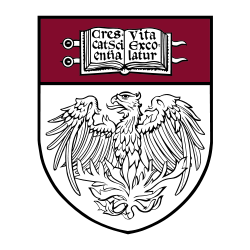 For a century the College of the University of Chicago has been an innovative leader in liberal education in the United States. Since the 1930s the curriculum of the College has varied in its details, but its intellectual foundations have been constant.
For a century the College of the University of Chicago has been an innovative leader in liberal education in the United States. Since the 1930s the curriculum of the College has varied in its details, but its intellectual foundations have been constant.
Undergraduate education at Chicago begins with a common core curriculum, conducted from the standpoint of multiple disciplines but beholden to none, which provides opportunities for critical inquiry and the discovery of knowledge. Chicago’s long-standing commitment to a rigorous core of general education for first- and second-year students emphasizes the unique value of studying original texts and of formulating original problems based on the study of those texts. The objective of our faculty-taught general education courses — which constitute the major component of the first two years in the College — is not to transfer information, but to raise fundamental questions and to encourage those habits of mind and those critical, analytical, and writing skills that are most urgent to a well-informed member of civil society.
Since 1946, the University’s Basic Program of Liberal Education for Adults has brought a similar vision and commitment to adult lifelong liberal education.
Parody is the Sincerest Form of Flattery …
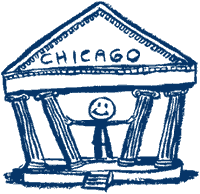
In the early 1960’s, Second City did a skit of a “Great Books” class run by the “University of Chicago Downtown Branch” discussing Sophocles’ Oedipus Rex under the guidance of a substitute teacher, “Mr. Throckmorton”. It appears on the troupe’s first LP “Comedy from the Second City” (Mercury, 1961).
Among many other priceless lines, my favorite is when “Miss Belden Stratford” (a reference to a local upscale apartment-hotel) scolds “Mr. Throckmorton” for trying to make the ancient text “relevant” by connecting it to the then-current controversy over the views of University of Illinois professor Leo F. Koch on pre-marital sexuality:
You think just because this is the University of Chicago Downtown Branch you can say anything?
But I suppose I’m biased. (Another “inside” joke is the name of student “Genghis F.X. Khan” — a reference to, and comment upon, the then-current dean in charge of the Downtown Center, Maurice F.X. Donohue.)
In any case well worth the eight minutes  .
.
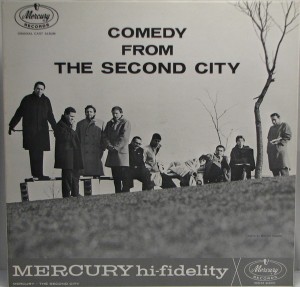
Chicago: The Great Books Capital of the World
In short, although the Great Books Movement was born elsewhere, “Chicago” — both in the sense of the City of Chicago in general and the University of Chicago more particularly — has been recognized as the “home” of Great Books, both in the United States and around the world, for nearly a century. And “Chicago”’s leading role in promoting collaborative, first-hand encounters with Western (and now also non-Western) Classics through Socratic Method seminars continues to this day.
More
- About > The Basic Program
- About > The Socratic Method
- Etc. > Basic Program Online Archive
- Liberal Education at Chicago @ University of Chicago
- Great Books @ Wikipedia
- Great Books Foundation @ Wikipedia
- Great Books Foundation
- Great Books of the Western World @ Wikipedia
- Center for the Study of the Great Ideas
- Shimer College
- Shimer College @ Wikipedia
You must be logged in to post a comment.